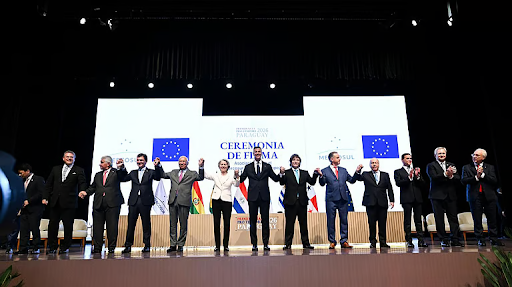Description
Context: Five new countries — India, Mexico, Norway, Ireland and Kenya — formally joined the U.N. Security Council at a time of growing polarization in the body charged with keeping world peace and security.
- They took part in a first meeting aimed at approving an agenda proposed by the current chair of the council, Tunisia.
- The new countries will hold non-permanent seats on the 15-member council for two years.
- The permanent members — the United States, Russia, China, France, and Britain — hold veto power.
- Divisions within the council have sharpened in recent years as the U.S. under President Donald Trump took a unilateral approach to diplomacy.
- While veto power by any of the permanent members was used 10 times or fewer from 1990 to 2000, it was used on 31 occasions from 2010 to 2019, and five times last year alone.
- The Security Council is active in many conflict zones and crises around the world, mainly through more than a dozen peacekeeping operations involving some 100,000 soldiers from U.N. member states.
India at UNSC
- India would be a voice for the developing world and use its tenure to foster “human-centric and inclusive” solutions to issues of peace and security.
- India was approaching its two-year term on the United Nations Security Council (UNSC) with “a strong commitment to reformed multilateralism”, India’s Permanent Representative to the UN.
- India comes into the Security Council as the largest democracy representing 1/6th of humanity and with a strong commitment to reformed multilateralism, rule of law, a fair and equitable international system and to peace, security and development,”
- “Peace-keeping, peace-building, maritime security, women and youth, especially in conflict situations, and technology with a human face, will receive our attention.
- India has for long sought a permanent seat at the Security Council. The reform of the Council is driven by intergovernmental negotiations, which are under the aegis of the General Assembly.
- However, India’s two-year term on the Council would be another opportunity to demonstrate why it was important to have a Council that was more “representative and reflective of contemporary realities
https://www.thehindu.com/news/international/five-new-countries-join-polarized-un-security-council/article33496711.ece?homepage=true






